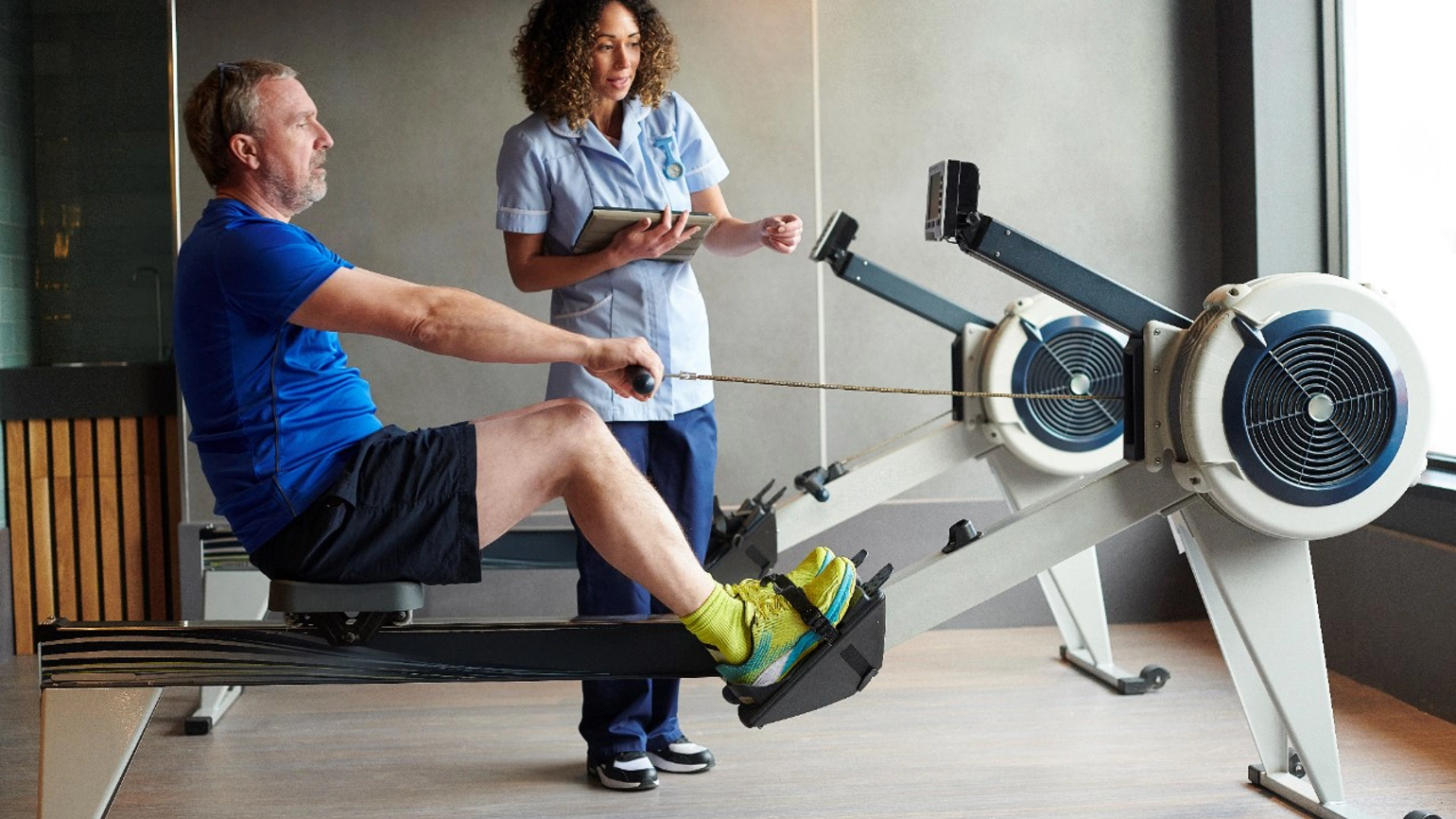- Retirement income, including annuities
- Lifetime mortgages/equity release
- Retirement financial advice
- Care
- Protection
Legal & General puts return-to-work success down to ‘whole person’ approach: 2022 annual claims, early intervention and rehabilitation data announced
Legal & General today released figures for 2022, revealing that 20% of all the employees in the UK that were able to return to work before the payment of any benefit from the Group Income Protection (GIP) they were covered by, was as a result of Legal & General’s early intervention and/or vocational rehabilitation services.
17 May 2023
Full press release

- 20% of all employees in the UK that were able to return to work last year within the deferred period of Group Income Protection policies were supported by Legal & General.1
- 92% of employees with Group Income Protection mental health claims were able to return to work within the deferred period, maintaining high levels of previous years.
- Legal & General says annual results are testament to its whole-person philosophy, embodied in its Be Well. Get Better. Be Supported. framework of wellbeing support. With the priority being people getting back to – or staying in – ‘good work’ as a key health goal.
In 2022, Legal & General’s internal clinical team carried out 7,155 assessments. They also funded 3,219 sessions for claimants suffering from physical and mental health conditions with their physiotherapy and psychological healthcare partners, up on 2,509 in 2021.
92% of employees with GIP mental health claims and 80% with GIP musculoskeletal claims were able to return to work between the time when they’re first absent and when a claim becomes payable - normally referred to as the deferred period, which is often 6 months.
Legal & General says the ongoing strength of its annual vocational rehabilitation and early intervention results are testament to its whole-person philosophy, which helps intermediaries and employers join the dots between the four pillars of wellbeing (physical, mental, financial and social). This philosophy is embodied in – and simplified by – Legal & General’s Be Well. Get Better. Be Supported. framework of wellbeing support; the whole-person model predicated on people getting back to – or staying in – ‘good work’ as a key health goal.
Support provided included:
- Early Intervention. 3,893 employees were referred to Legal & General’s early intervention services between 4 weeks and 6 months of absence due to illness or injury, representing 69% of total absences referred within that timeframe in 2022.
- Rehabilitation 2,509 employees in long-term absence of more than 6 months were referred to Legal & General’s vocational rehabilitation services as part of the proactive claims management model enabling people to thrive at work. This represented 36% of total absences of 26 weeks or more during 2022.
Total Group Risk Claims
In 2022, Legal & General paid total claims of around £320.4m in Group Protection claims across Group Life Assurance, Group Income Protection and Group Critical Illness.
Vanessa Sallows, Claims and Governance Director, Legal & General Group Protection: "2022 saw good outcomes for Legal & General’s Group Protection customers. We’ve provided financial peace of mind when people need it most. We’ve helped break down barriers to wellbeing, helping more people access the support they need in a way that works for them; using technology to complement the human aspects of the service we provide.
“At Legal & General, our goal is to help intermediaries and clients optimise wellbeing. Central to this is our Be Well. Get Better. Be Supported. framework. We’ve long advocated whole person thinking; joining the dots between the four pillars of wellbeing, viewing good mental health as the foundation for everything, and considering staying in – or getting back to – ‘good work’ as a key health goal. Today’s announcement is testament to the success of our philosophy and framework. It’s also a reflection of the dedication, innovation and support of an amazing team.”
References
1 Based on GRID’s 2022 all-of-industry statistics which show that 4,257 people were able to go back to work during the deferred period last year because of an active early intervention funded by an insurer.
Further information




